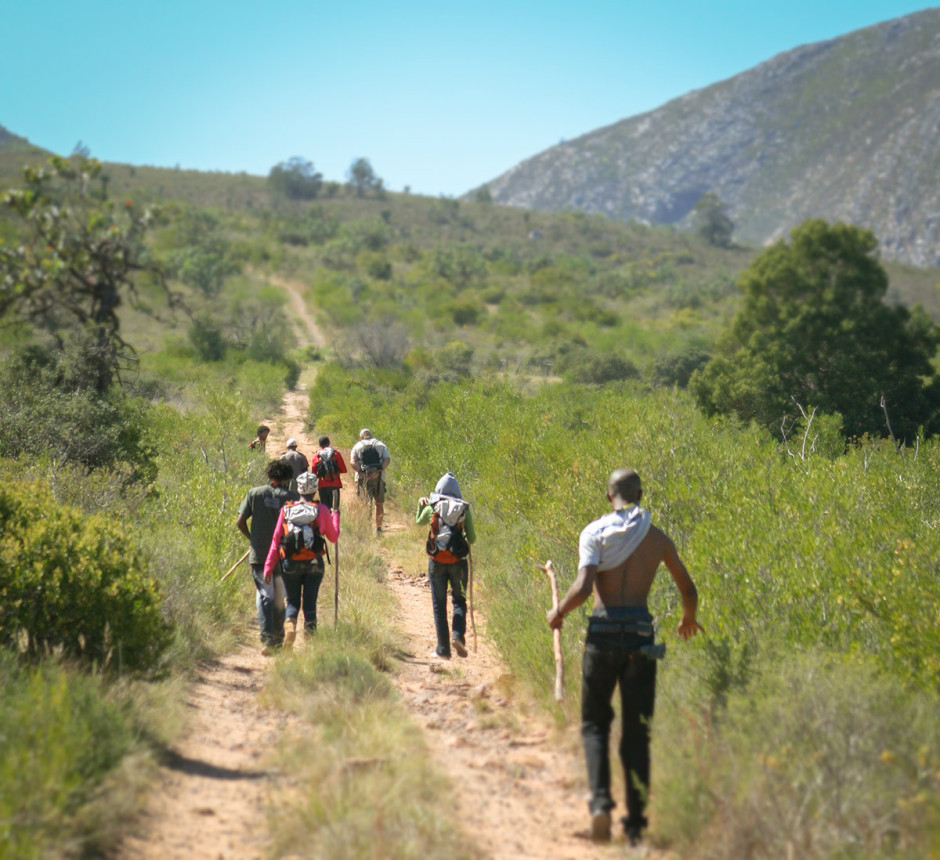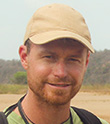
Exploring meaningful nature experience, connectedness with nature and the revitalization of transformative education for sustainability.
PhD Dissertation Abstract:
Humanity‘s growing separation from nature is central to the convergent social and ecological crises facing earth. This is both a psychological (e.g. perceptual, emotional) and physical (e.g. experiential) disconnect and is therefore better understood as a crisis in consciousness. Whilst the call to ‘reconnect with nature’ is increasingly commonplace in conservation literature and popular environmental discourse, the expression is sometimes used haphazardly without clear guidance on how ‘reconnecting’ can be defined, what it involves and what we are actually aiming for.
In utilising a theory of complexity, this transdisciplinary research brings together four core themes: connectedness with nature (CWN), invasive alien (non-native) species (IAS), and education for sustainability (EfS); each of which are explored around – and in relationship to – the core concept of meaningful nature experience (MNE) and its potential role in alleviating humanity’s fading CWN and in healing the divisive ways in which humans tend to think, see and act in the world.
The study had four primary aims:
- To uncover the essences which help describe what MNE feels like (how it appears in consciousness) and that which makes MNE what it is.
- To explore the relationships between the core themes: i.e. the impact of MNE on CWN; the extent to which MNE influences environmentally responsible behaviour (ERB); how ecological change (induced through IAS) affect MNEs; and how MNE and CWN influences perceptions of IAS.
- To examine the implications of the above for EfS: is there merit for integrating MNE and CWN in EfS? What would such a process look like and how can it be applied in a way which revitalizes EfS?
- As a form of heuristic inquiry, to reflect upon the researcher’s own process of conscious transformative learning.
In employing online and street-based questionnaires, in-depth interviews and field observation, this study used a mixed methods and phenomenological approach to analyse over 200 accounts of MNE in order to distill its essential themes.
The research found that a MNE is triggered by an unexpected encounter with the ‘non-ordinary‘ in nature. It is characterized by heightened sensory awareness (e.g. the beauty and detail of natural phenomena arrest our attention), intensified emotional (e.g. awe, amazement) and physiological responses (e.g. a ‘rush‘). If an animal is involved, close proximity, extended length of time and reciprocity were key themes. For a MNE not involving an animal, perceived aliveness, vibrancy and energy pervading the land-/ sea-/ sky-scape were primary. Individuals reported feeling interrelatedness and a diminished sense of self. The privilege to commune with an ‘other‘ seems to (re)define a person’s being and belonging in the world.
Respondents who have had a MNE exhibited a higher CWN; a positive correlation existed between frequency of MNE (fMNE) and CWN. Stronger correlations with CWN were found when a wild animal was involved in the MNE. Spiritual / religious practices positively correlated with fMNE and CWN with regular displays of gratitude toward nature returning slightly stronger correlations with CWN. Strongest correlations were found between the experience of synchronicity and CWN.
The essence of this research points toward the need for an educational renaissance in terms of providing opportunities for rediscovering a sense of connectedness through meaningful nature experience.
A qualitative analysis of respondents’ MNEs and their responses on how they perceive their MNE(s) to have changed them, found multiple and diverse mention of (newfound) appreciations of (inter)connectedness. This suggests that MNE acts as a conduit for CWN: one powerful MNE may be sufficient to catalyse the process; however, a higher fMNE increases the likelihood for heightened CWN. Such results affirm the idea that MNEs facilitate a relational worldview necessary for a consciousness attuned to CWN.
CWN is considered to be a reliable predictor for environmentally responsible behaviour (ERB). Over 90% agreement was found between respondents on the positive impact of MNEs in: shaping their views on nature and biodiversity; influencing their current behaviour and actions toward nature and the environment; and heavily influencing, changing or transforming their outlooks on life. The most common themes to emerge on how MNE was perceived to have changed respondents related to understanding of (inter)connectedness/interdependence; career choice; respect for nature / life; and new ways of seeing the world. This supports the premise that, through affective bonding with nature, MNEs can motivate: ERB; life paths into conservation-minded careers; and serve as catalysts for personal growth and transformation, particularly when complemented with reflection, social (guided) facilitation and ecological literacy.
The presence of invasive alien (non-native) species (IAS) in a landscape is likely to adversely affect MNE for stated reasons of ecological impacts, diminished ‘naturalness‘, destructiveness and reduced diversity. Those viewing IAS as potentially enhancing their MNEs cite reasons of beauty, novelty and enjoyment, although perceptions are knowledge and context dependent. Respondents’ CWN does not appear to affect perceptions of IAS; however, elevated CWN may invoke empathy, a sense of relatedness and appreciation of IAS intrinsic value as ‘life’. IAS may also feature in MNEs and, through experiential and metaphorical insight, can deliver valuable newfound understandings of social and ecological connections as it relates to one’s relationship with IAS and society in general.
Respondents concur that modern education does not suitably prepare society to learn from MNE. Widespread agreement was found on the benefits of an education that promotes MNE and CWN through a blend of intellectual concepts, experiential activities, values and ethics, and integrated learning approaches. Experiential nature-based activities were seen as vital EfS vehicles for enhancing: sensory awareness; respect for nature; ecological knowledge and encountering connectedness. In-depth interviewees saw future EfS opportunities and solutions as focusing more on: participating with nature; bridging spirituality and science; facilitating ‘openness‘ and shared experience; instilling values reflecting an interconnected reality; encouraging mentoring; contemporary rites of passage; and simply learning to live better.
The essence of this research points toward the need for an educational renaissance in terms of providing opportunities to facilitate expanded appreciations of connectedness (i.e. with Nature, Community, Self and Source) and the manifold ways it is encountered through MNE. This study therefore proposes Theory edU as an avenue for revitalizing EfS as an education in connectedness. Against the backdrop of ‘everyday life’, a MNE affords a glimpse of ‘potentials’ concerning our relationship with both nature and society. It invites us to consider whether a consistent sense of CWN can become the new normal and, in turn, enabling ‘everyday life’ to be lived as a meaningful experience. Download Here »
 “I would like to extend heartfelt thanks to everyone who was involved in making this research possible, whether through responding to surveys, participating in interviews, sharing personal experiences or providing ideas, advice, feedback and support. This may be ‘my’ dissertation but it is truly an emergent result of ‘our’ collective experiences and input so I remain deeply grateful and humbled by that.”
“I would like to extend heartfelt thanks to everyone who was involved in making this research possible, whether through responding to surveys, participating in interviews, sharing personal experiences or providing ideas, advice, feedback and support. This may be ‘my’ dissertation but it is truly an emergent result of ‘our’ collective experiences and input so I remain deeply grateful and humbled by that.”
~ Matthew Zylstra.
 “I would like to extend heartfelt thanks to everyone who was involved in making this research possible, whether through responding to surveys, participating in interviews, sharing personal experiences or providing ideas, advice, feedback and support. This may be ‘my’ dissertation but it is truly an emergent result of ‘our’ collective experiences and input so I remain deeply grateful and humbled by that.”
“I would like to extend heartfelt thanks to everyone who was involved in making this research possible, whether through responding to surveys, participating in interviews, sharing personal experiences or providing ideas, advice, feedback and support. This may be ‘my’ dissertation but it is truly an emergent result of ‘our’ collective experiences and input so I remain deeply grateful and humbled by that.”~ Matthew Zylstra.
Resources:
Bibliography | Helpful Links | Experiences | Research | Download »
Stay connected with news and more via the eyes4earth.org Facebook page:
Bibliography | Helpful Links | Experiences | Research | Download »




15 Comments
I am looking forward to reading this- as someone who tries to connect women(mainly) to their own wild nature through movement, dance, sacred circles, stories and by encouraging us all to BE in nature- to grab the moment, to lie on the grass, to listen to the birds, to see the stars….I will be very interested in your work. Thanks to you!
Dear Sarah, thank you kindly for your comment. It sounds like you are already doing important work linked to applying insights related to this research so I look forward to your eventual feedback.
This is a very exciting & encouraging dissertation. Pulling together these important attitudes and behaviors and linking them to past experiences, current perceptions and future intentions is a lot of work, and absolutely what the field needs to understand how these pieces of human ecology fit together. Congratulations and thank you for doing this! Looking forward to the ripple effects of this important bit of work you’ve done.
Much appreciated, Kurt. A lot of work it was and hope the ripples might eventually reflect some of the energy invested… : ) Thanks.
This is probably the most exciting thing I’ve read in a while. I struggled all of last year trying to clarify and explain these concepts to others during a course in sustainability leadership. Now it’s science! Thank you.
Thanks for the encouraging feedback. I am glad that the work has helped clarify concepts which may sometimes come across a bit nebulous or woolly and therefore struggle to find their way into scientific discourse, even though they may indeed be factors that are vital in shaping leaders for sustainability.
Thank you for sharing the link with the Australian Association for Environmental Education community.
This is so inspiring Matt. Thank you for all of your hard work! I met you at an AOM in Santa Cruz, CA a few years back. I am excited to see how your work has progressed.
Hi Collette. Thanks for your words and reconnecting. Yes, I remember you well from AOM (southwesters!) and am happy to hear that my research has reached you.
Hi Matt how has aom Santa Cruz fit into your dissertation journey? Before, during after?
Mark
Hi Mark, AOM was during my research period and definitely enriched it. I wrote a reflection on my experience at the time: http://wp.me/p1aZ1W-Id Wish I was able to attend the upcoming one this month. Best, Matt
Hi Matthew, I write a blog called Humans are Nature. I feel so validated by this research. Thank you for generating solid evidence for the truths we feel in our hearts. My particular interest is in connecting with nature in meaningful ways in the city. I have several trees that guide and support me in this work. I am eager to follow your work and hopefully converse with you about shared themes that are emerging. Kiri
Hi Kiri, thanks for the message and good to learn about your blog and writings. Appreciated your last piece where you address the persistent dichotomy between the ‘real’ nature (out there in the wild) and the perceived ‘lesser’ nature in the suburbs (right here at home). Not an easy one to reconcile.
Dear Matthew, by accident I found your dissertation and I’m really happy I did! I am currently writing my master thesis on meaningful activities in nature, so I guess I can learn a lot from your work. Looking forward to read it!
Hi Lieke, thanks for this and I hope the dissertation can aid your research. I would be interested in reading your thesis when completed.